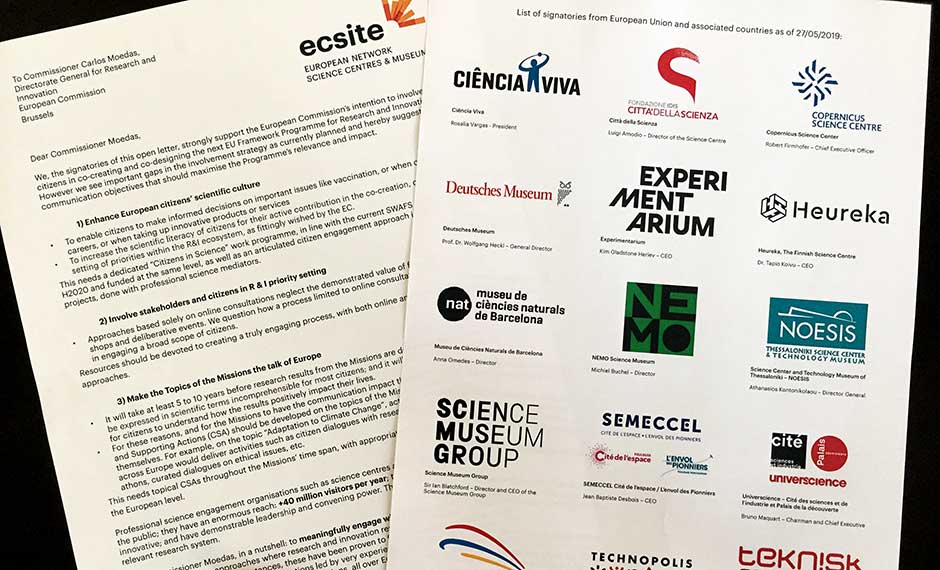VA has signed Ecsite’s open letter to the European Commissioner for Research and Innovation, Carlos Mœdas. The letter calls for an inversion of the “top-down” dissemination of scientific results in favour of involving citizens in the co-creation and co-design of the next EU Framework Programme for Research and Innovation. Including VA, the open letter is endorsed by 135 networks and organisations.

The letter came about due to apparent “important gaps” in the citizen involvement strategy of the current plan for the new Horizon Europe programme.
Despite the mobilisation of the science engagement field in the past years, there is no equivalent of the current ‘Science with and for Society’ (SwafS) strand in the new framework programme.
Failure of top-down communication
The open letter highlights the failure of top-down communications approaches where science is “delivered” and “explained” to citizens. Instead, the letter proposes the Commission to “be more ambitions on Science Engagement” and enlist the support and expertise of museums and science engagements institutions around Europe. These institutions are an invaluable contact point between researchers and citizens, as the open letter explains:
“Professional science engagement organisations such as science centres and museums are trusted by the public; they have an enormous reach: +40 million visitors per year; they are highly experienced and innovative; and have demonstrable leadership and convening power. They are necessary for an efficient and relevant research system.”
Involve citizens from the start
The letter presents three objectives that, if included in the next EU Framework Programme, would maximise both relevance and impact. These objectives are:
- Enhance European citizen’s scientific culture
- Involve stakeholders and citizens in Research & Innovation priority setting
- Make the topics of the Missions the talk of Europe.
The objectives outline the need for citizens to be scientifically literate in order to make decisions and take part in meaningful debates, as well as being involved in priority setting using face-to-face media such as workshops. The third objective also addresses the problem that research takes years to provide tangible results. To combat this, communication strategies should be developed around the topic of the research mission and not only around the results.
